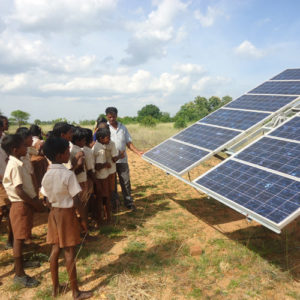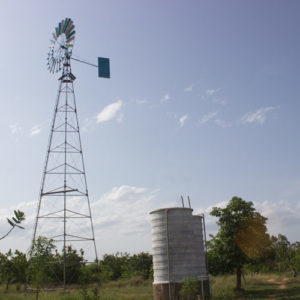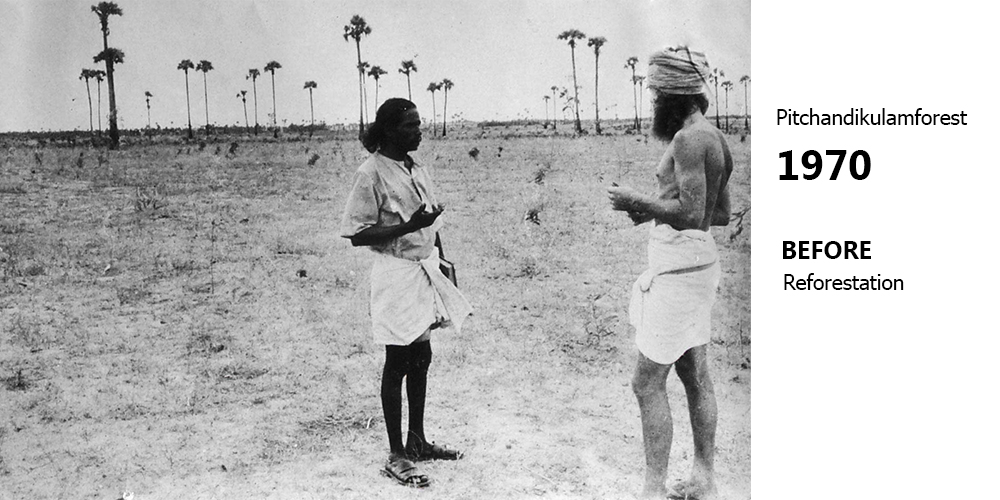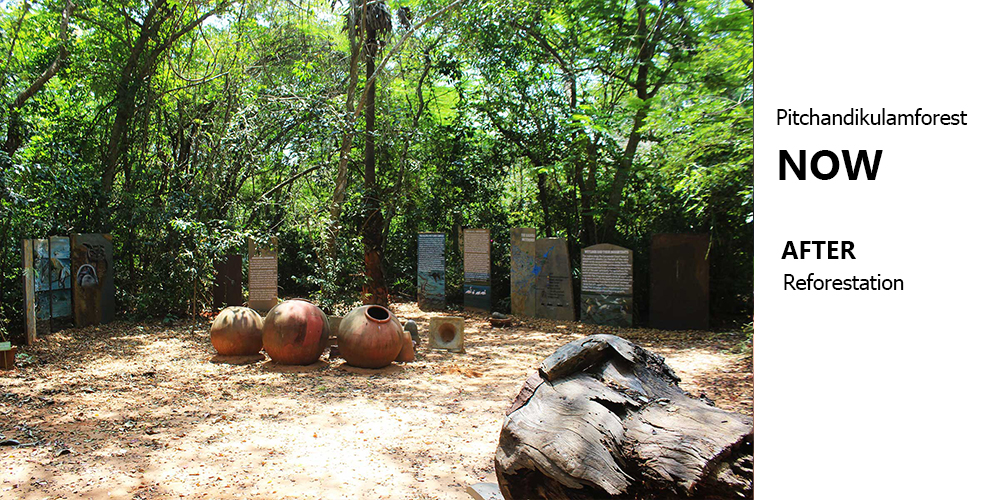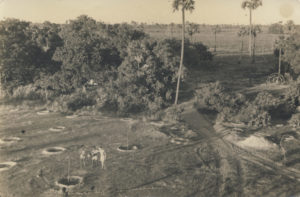The Pitchandikulam Story
Pitchandikulam Forest is an environmental organisation and community based in the green belt of Auroville in coastal Tamil Nadu, South India, where you can find:
- a 75-acre forest
- our social outreach and external consultancy offices
- a bio-resource education centre
- classrooms and meeting rooms (both indoors and outdoors)
- an art studio
- a bio-resource display centre
- a medicinal plant garden
- a museum of rural Tamil life
- an architecture and structural design practice
- volunteer accommodation and communal kitchen
- private housing for the Pitchandikulam community
Our mature forest, and much of our restoration and reforestation work, celebrates the indigenous vegetation of our bioregion – the Tropical Dry Evergreen Forest (TDEF) – which is one of the rarest and most diverse wild ecosystems in India. It is a peaceful sanctuary with over 800 species of plants in the grasslands, nursery and in our ethnomedicinal forest.
The name Pitchandikulam means “Pitchandi’s Pond” in Tamil, named after a local traditional healer (vaidya) called Pitchandi who practised healing at the pond (kulam) in the heart of our forest many centuries ago.
Restoring the Forest
The Tropical Dry Evergreen Forest filled the Auroville Plateau until the 1820s, when much of it was cut down in an attempt to decrease the tiger population. Up to the 1950s, the areas that remained were destroyed for timber to make boats. When Auroville was founded, the original Tropical Dry Evergreen Forest only survived in isolated patches, thanks to the phenomenon of sacred groves around Hindu temples.
The first Aurovilian settlers in 1968 onwards found the land dry and desolate; prior to 1973 only a few scattered palm trees were found in the area and the traditional dryland farming of peanuts and pulses had degraded the soil, leaving deep eroded gullies. In that year, restoration processes were set in motion using green manures to rebuild the soil. Live fences were created to protect the land from goats and cows, and pioneer species of acacia, leucaena, gliricidia, and eucalyptus were planted to provide windbreaks and shade. At the same time seeds and other plant materials were introduced from nearby remnant patches of the almost extinct Tropical Dry Evergreen Forest, and nurseries were set up – which have been an essential focus of the Pitchandikulam community ever since. In the same year the first well was dug at Pitchandikulam and a bullock cart was used to water the young trees.
Pitchandikulam Today
Plants and People

Today Pitchandikulam is a self-generating forest with a wide diversity of flora and fauna. There has always been a strong emphasis on conservation of indigenous plant species with a particular focus on medicinal plants and the people who use them.
In 1993 Pitchandikulam Forest became part of a National Medicinal Plant Conservation Network, co-ordinated by the Foundation for Revitalisation of Local Health Traditions (FRLHT) in Bangalore.
Research and Education
Documenting and celebrating the traditional knowledge systems and technologies of local people has always been central to our work, and through our community education activities in the schools of the bioregion, we help to provide models of sustainable ecological practices for the next generation. Our team of botanists, biologists and community activists work from Pitchandikulam to restore the material indigenous forest and the intangible traditional knowledge that supports and nourishes the local ecosystem.
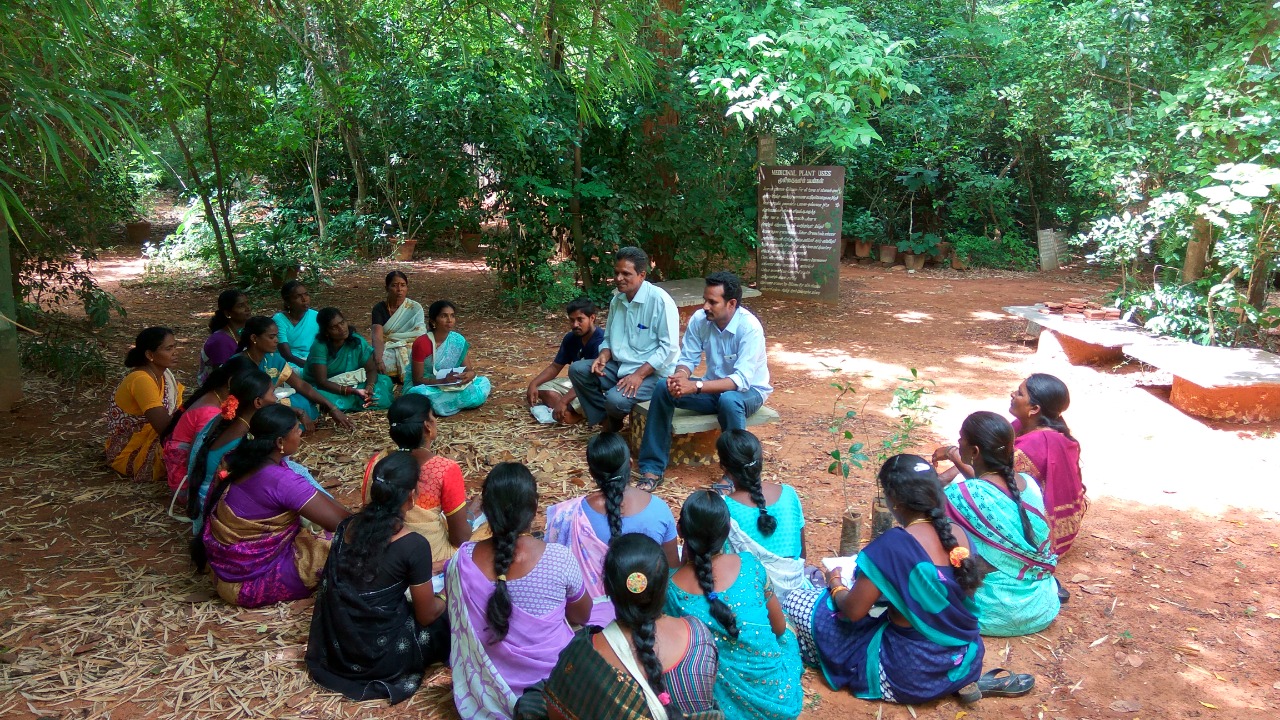
Pitchandikulam Bioresource Centre with its library, database, artefacts and photo displays, provides a focus for the teaching of restoration ecology, environmental science, and the identification and use of indigenous medicinal plants. A major focus of Pitchandikulam is community outreach and we currently work in 25 villages through the Kazhuveli bioregion.
Art and International Outreach
Art department helps us to spread a positive ecological message and help people everywhere appreciate natural beauty in all its detail.
The Pitchandikulam Art Collective works with stone, ferro-cement, slate, canvas, bronze and resin, to create artworks for parks, museums, and interpretation centres depicting the wildlife of the subcontinent.
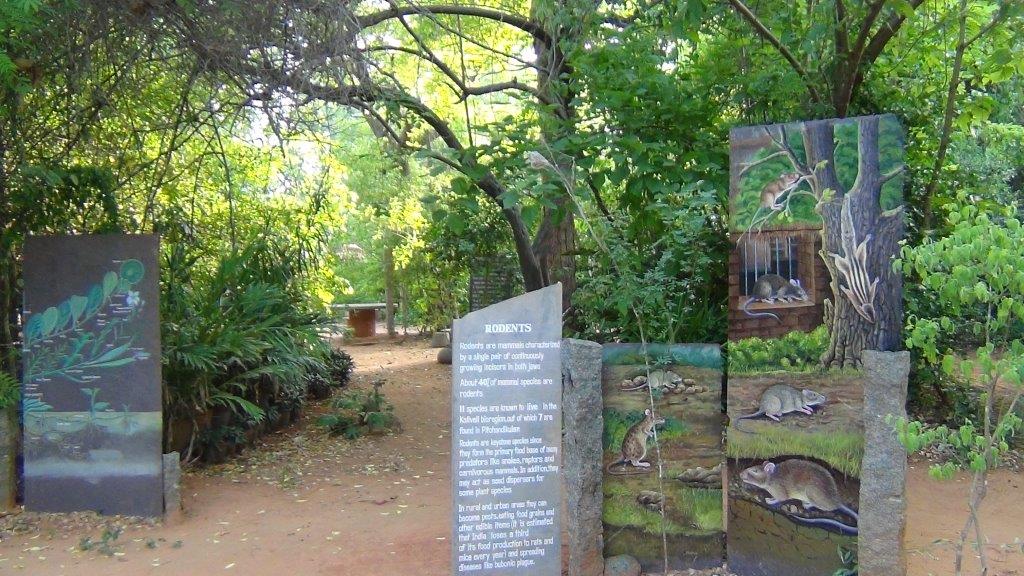
We are also pleased to host the Global Ecovillage Network (GEN) desk for Auroville, and we work to build relationships with other intentional communities, both in India and around the world.
Sustainable Technology
We use sustainable technology where possible in all our activities.
Pitchandikulam Forest runs largely on solar power: for electricity, pumping water, and increasingly, transport. At our Environmental Education Centre in Nadukuppam, we have developed an integrated water sanitation system, a solar energy hub and various organic agricultural activities.
By providing working examples of sustainable technology, we help the local people that we work with to understand the benefits of a sustainable and holistic approach to strengthening their communities.
